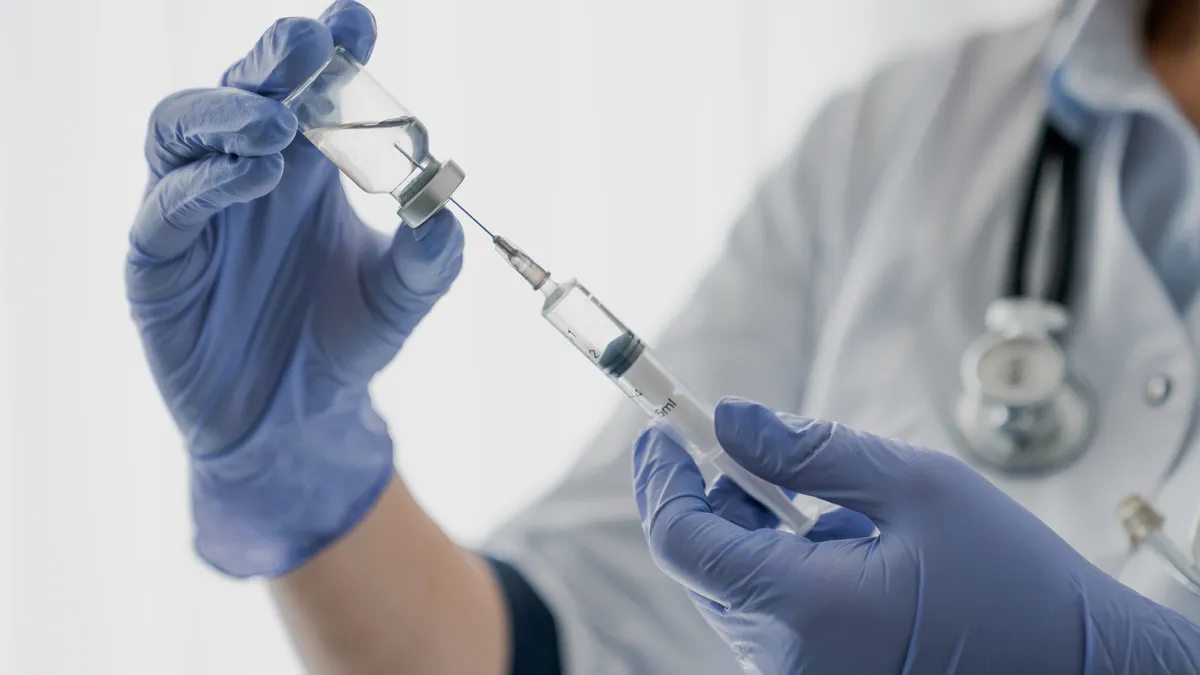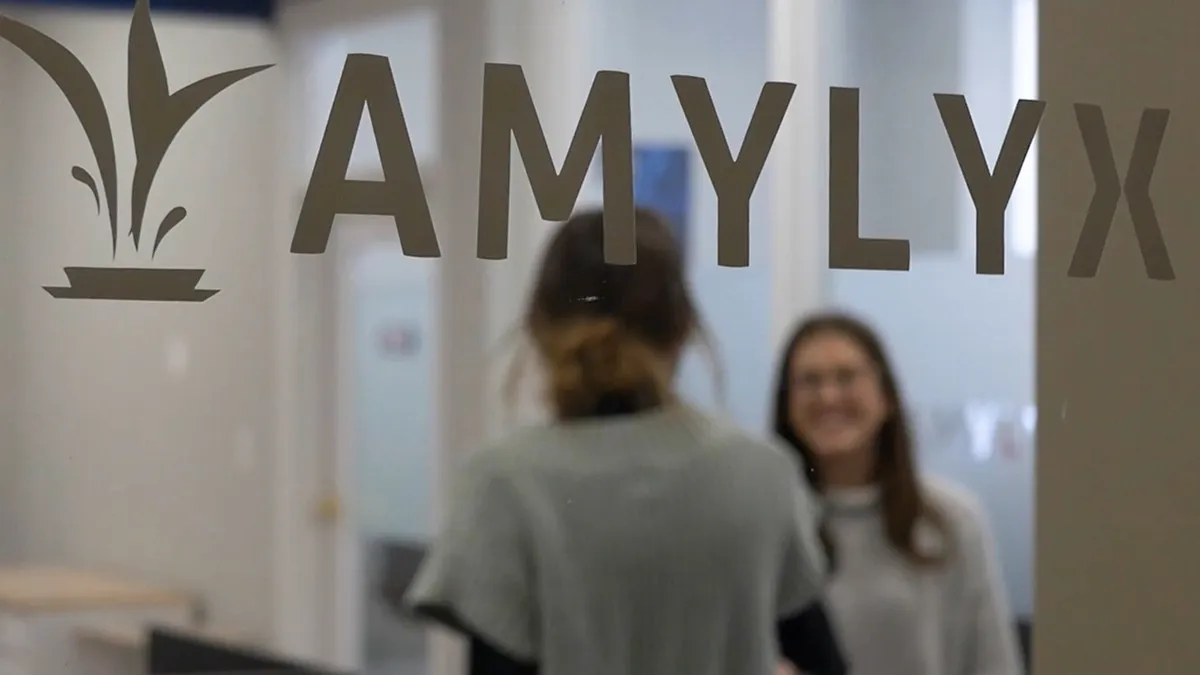For some, there’s a jolt of glee in the brief seconds after the seal of a Coca-Cola bottle is broken and that puff of carbonation escapes. It’s a sound often associated with memorable moments.
But to Jeff Fischer, president of Longhorn Vaccines and Diagnostics, it likely evokes thoughts of innovation in unlikely situations, rather than nostalgia. It was, after all, that classically tight seal that led Fischer and Longhorn into an unexpected partnership with the soda maker to produce COVID-19 diagnostic tests in Spring 2020. It also helped showcase the company’s willingness to find out-of-the-box solutions to emerging challenges.
Now, Fischer is hoping Longhorn can leverage that reputation as it works to develop a successful universal influenza vaccine — a goal he and his father, Gerald W. Fischer, have sought since founding the company in 2006.
“As we now move really to our growth opportunity, which is our vaccine side, and move into clinical trials on our universal influenza vaccine, I think that it gives people an opportunity to see that we've executed in the past,” Fischer says.
To translate that success in infectious disease diagnostics to the world of vaccines, Longhorn is doubling down on the traits that have already made it successful by seeking to build on key partnerships.
Agile nature
Longhorn’s first breakthrough came in 2009, when its Influenza A/H1N1-09 Prime RRT-PCR Assay became the first “collection-to-detection” platform approved by the FDA for emergency use authorization to diagnose the swine flu. The platform included the company’s proprietary PrimeStore Molecular Transport Medium (MTM) technology, a microbial nucleic acid and stabilization device that inactivates all virus material, creating a safer and more stable sample for qPCR testing.
“We were just a small company [and] were able to show off our products, and so we kept looking for uses after the pandemic,” Fischer says.
At the time, there wasn’t an appetite in the U.S. for influenza molecular testing, so the company transitioned, working on a diagnostic for tuberculosis that could be used in the developing world for nearly a decade until, in 2018, its PrimeStore MTM received de novo clearance from the FDA, creating a new category of sample collection devices.
“We were in the process of starting to roll it out for clinical use in the U.S. when the pandemic hit,” Fischer remembers. “The FDA came to us and said, ‘We don't have enough sample collection media.’”
The company pivoted, answering the FDA’s call by collaborating with domestic manufacturers to ensure the inclusion of its PrimeStore MTM in COVID-19 testing kits.
“We were able to scale rapidly from the capability of doing about 100,000 tubes a year to be able to do up to five million a week,” Fischer explains. “We did that all with a staff of about 12. And mainly, [with] four executives that managed that process.”
When the national supply of tubes began to run out, Longhorn remained agile. And that’s when, with the help of several national research labs, the company discovered that preform Coca-Cola bottles are almost identical to test tubes, with a slightly wider mouth and one key benefit — an air-tight lid.
“One of our challenges was getting a proper seal on the cap so that you didn't get anything leaking. Coca-Cola makes about a billion of these tubes a year. Obviously, they can't afford for any carbonation to leak out,” Fischer says. “So, there was never a question [of] whether or not we would have a leaking problem because there probably has never been a tube that's been tested more than a Coca-Cola bottle.”
The pharma-soft drink collaboration only lasted until the supply of regular test tubes ramped up again, and wasn’t widely accepted by the laboratory community, Fischer says, because they didn’t fit standard tube racks and looked different. But it was an available solution to a global problem, and Longhorn leaped at it without looking back. The jump allowed the company to continue filling the U.S. COVID-19 testing need and helped the company gain greater traction.
“We went from our best year of about a half a million tubes to doing 50 million tubes in 2020 and then another 25 million tubes here in 2021,” Fischer says.
A future in vaccines
After the pandemic pivot, Longhorn is now pushing ahead with its universal influenza vaccine and a potential monoclonal antibody vaccine for Mycobacterium tuberculosis, Fischer says. The company has been developing the flu vaccine candidate, LHNVD-105, for the past 15 years and now says it could yield initial phase 1 clinical trial results as early as this year.
It is a “a multi-epitope unconjugated influenza composite peptide,” formulated in collaboration with the U.S. Army’s Liposomal Adjuvant (ALFQ), a next generation version of the adjuvant licensed to GlaxoSmithKline for its highly successful shingles vaccine, Shingrix.
“We built this vaccine, not just to have an effect against all strains of influenza, but to be more durable so that once we are able to inoculate the population, we don't have to keep going back,” Fischer says, noting that the company is hoping to avoid some of the “limitations and the durability” concerns associated with COVID-19 mRNA vaccines.
The composite peptide formula allows for highly scalable vaccine manufacturing. In preclinical trials, the vaccine also required a smaller dosage than other influenza vaccines.
And, while more companies are entering the search for a universal influenza vaccine after COVID-19 placed a spotlight on the potential threat of a future flu pandemic, Fischer says he hopes his family’s “long history with vaccines and monoclonal antibodies,” give them a leg up.
"We built this vaccine, not just to have an effect against all strains of influenza, but to be more durable so that once we are able to inoculate the population, we don't have to keep going back."

Jeff Fischer
President, Longhorn Vaccines and Diagnostics
That history goes back to the launch of the company when his father — an Army veteran — discovered a serum with protective antibodies against respiratory syncytial virus (RSV), which can cause mild, cold-like symptoms, while running a research lab at the Walter Reed Army Institute of Medical Research. The Army wasn’t interested in commercializing the product so his father started a biotech company with his wife, Fischer’s mother, and eventually licensed it to MedImmune, now owned by AstraZeneca. From there on, the family was hooked on the biotech business.
And after a four-year stint in the Marine Corps and some time at University of Texas Austin’s business school — for which Longhorn is named — Fischer joined his father in another venture to look at monoclonal antibodies for preventing bacterial infections in premature babies.
Leveraging relationships
Since then, the team has leveraged those experiences, along with their strong relationship to the military and his father’s connections with Walter Reed, to develop ongoing work at Longhorn.
“Nobody needs a universal influenza vaccine more than the military,” Fischer says. “And so, if this relationship can get it first and foremost to the military and then ultimately to the rest of society, that's how we see things [progressing].”
So far, the preclinical results for the vaccine have “led the U.S. Army to dedicate resources and parts of their clinical development lab,” to the project Fischer says, noting that the Army has picked up “a lot of what would have been heavy lifting” and views the vaccine as a “priority.”
Fischer is hoping the data collected in the phase 1 trial could provide insight into the ultimate efficacy and safety of the vaccine.
“What we've seen from the COVID vaccine development is there's a lot of faith that when one goes into phase 1… especially for a viral RNA vaccine,” he says. “I think that we're really excited to see whether or not we can know after phase 1 whether this thing is going to work or not.”
If it does work out, the vaccine’s impact would be major. The World Health Organization estimates that pre-COVID, the global flu caused three to five million cases of severe disease and 290,000-650,000 deaths annually. The effectiveness of current seasonal flu vaccines at protecting people against severe illness and death remains highly variable and often low.
For instance, a 2021 study found that flu vaccination resulted in only a 26% lower risk of ICU admission and a 31% lower risk of death. The efficacy also can differ against varying strands of the virus.
And there are currently no FDA approved universal flu vaccines to replace them. If successful, Longhorn’s candidate could make it harder for these strains to escape the scope of the vaccine — finally offering an effective defense against the world's yearly battle with the flu.



















